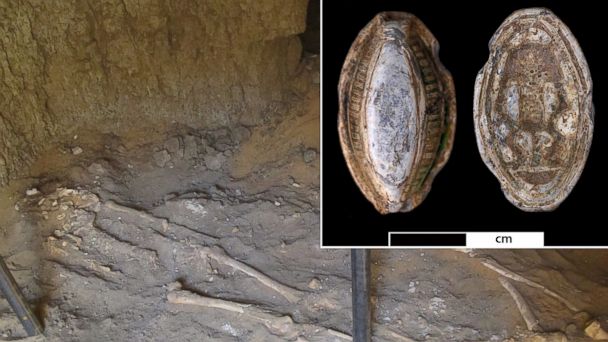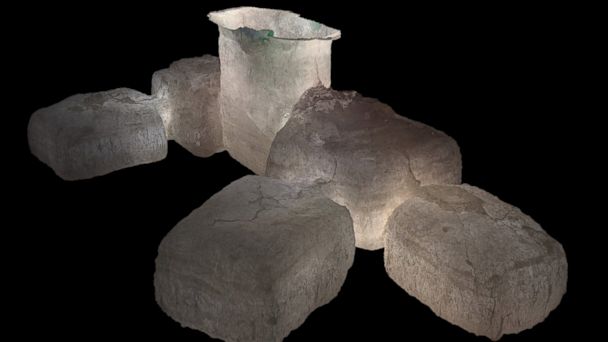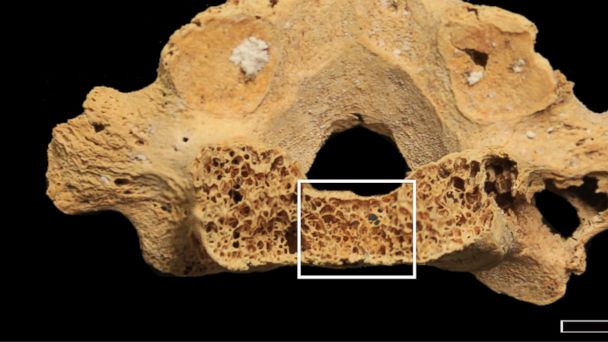Oldest Evidence of Human Cancer Discovered in African Tomb
The 3,200-year-old skeletal remains of a young man found in a tomb in Africa harbor the oldest evidence yet of cancer in humans, researchers said.
The bones, found last year by Durham University and British Museum researcher Michaela Binder in Sudan on the banks of the River Nile, were riddled with telltale pockmarks of metastatic cancer, a tumor that spreads from the original cancer site to other parts of the body, according to findings reported in this week's issue of the journal PLOS ONE.
He was buried on his back in a painted wooden coffin with a glazed amulet. Binder said she ran tests in the lab to rule out the possibility that the marks were made by termites or some other environmental factor.
Related: Mom of Newborn Fights Rare Placenta Cancer
While cancer is usually blamed on modern lifestyle, a consequence of poor food choices, lack of exercise and excess smoking and drinking, Binder said that this discovery is evidence that the disease may be as old as humanity itself.
"It was likely a less prevalent disease than it is today but this shows that many factors in the environment that have been shown to cause cancer have been around a long time," she told ABC News today.

The skeleton is seen in its original burial position in the western chamber. (British Museum/Durham University)
Possible causes for the unfortunate young man's cancer? He might have inhaled smoke from wood-burning fires. Binder said smoky fires can contain just as many unhealthy chemicals as cigarette smoke. Or, he may have been exposed to the parasite schistosomiasis, which is associated with bladder and breast cancer in the same geographical region today. It's also possible the 25- to 35-year-old man may have had a genetic predisposition to cancer.
"We have no proof of the cause. We simply don't know," she said.
Virtually all types of cancers have the ability to spread, according to the National Cancer Institute. They start by invading nearby tissue, then travel through nearby blood vessels and lymph nodes to set up shop in distant locations throughout the body. The American Association for Cancer Research reports that 90 percent of cancer deaths can be blamed on metastasis.
Binder said in this instance, they were unsure of the original cancer site. She also said even though cancer is one of the leading causes of death worldwide, it has been largely absent from archaeological digs.
"That makes this not only important as an historical find. It may also be useful to researchers trying to understand the evolution of the disease," she said.

A virtual model of an internal structure of grave G244, with five burial chambers off the rectangular vertical entrance shaft. (British Museum/Durham University)
Related: Dispute Over Missouri Cancer Cluster

A destructive lesion in vertebral body of the 7th thoracic vertebrae. (British Museum/Durham University)